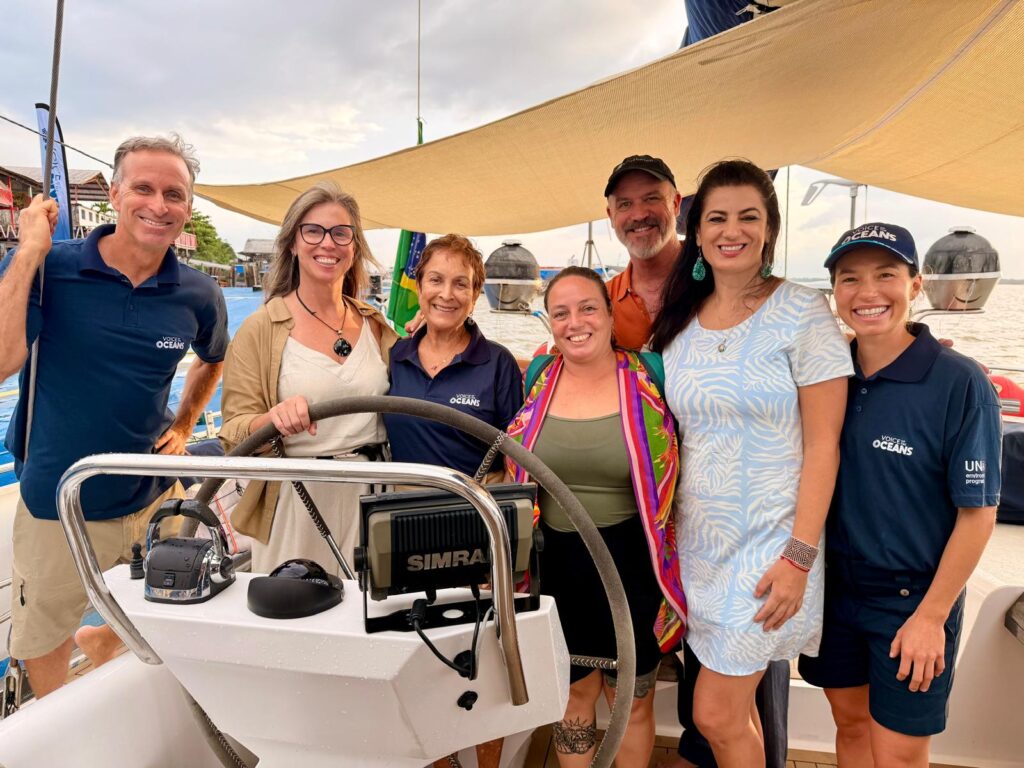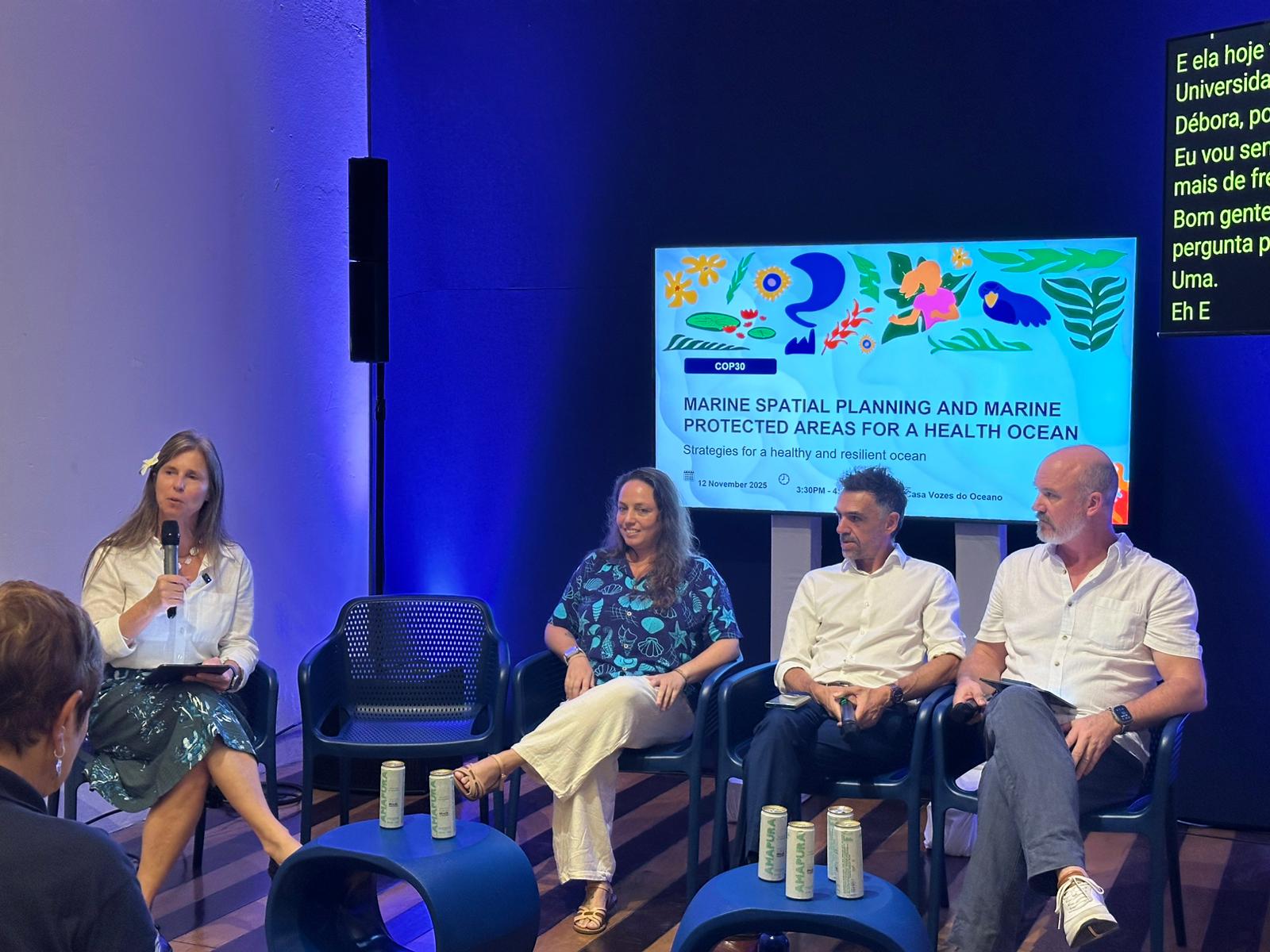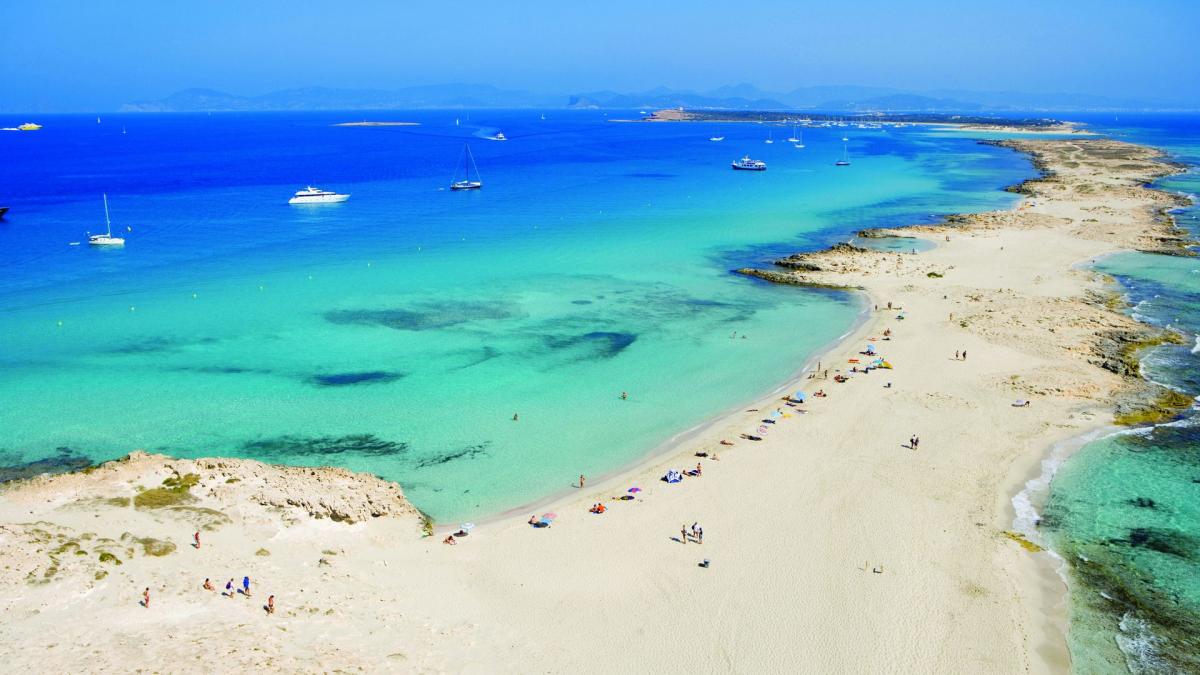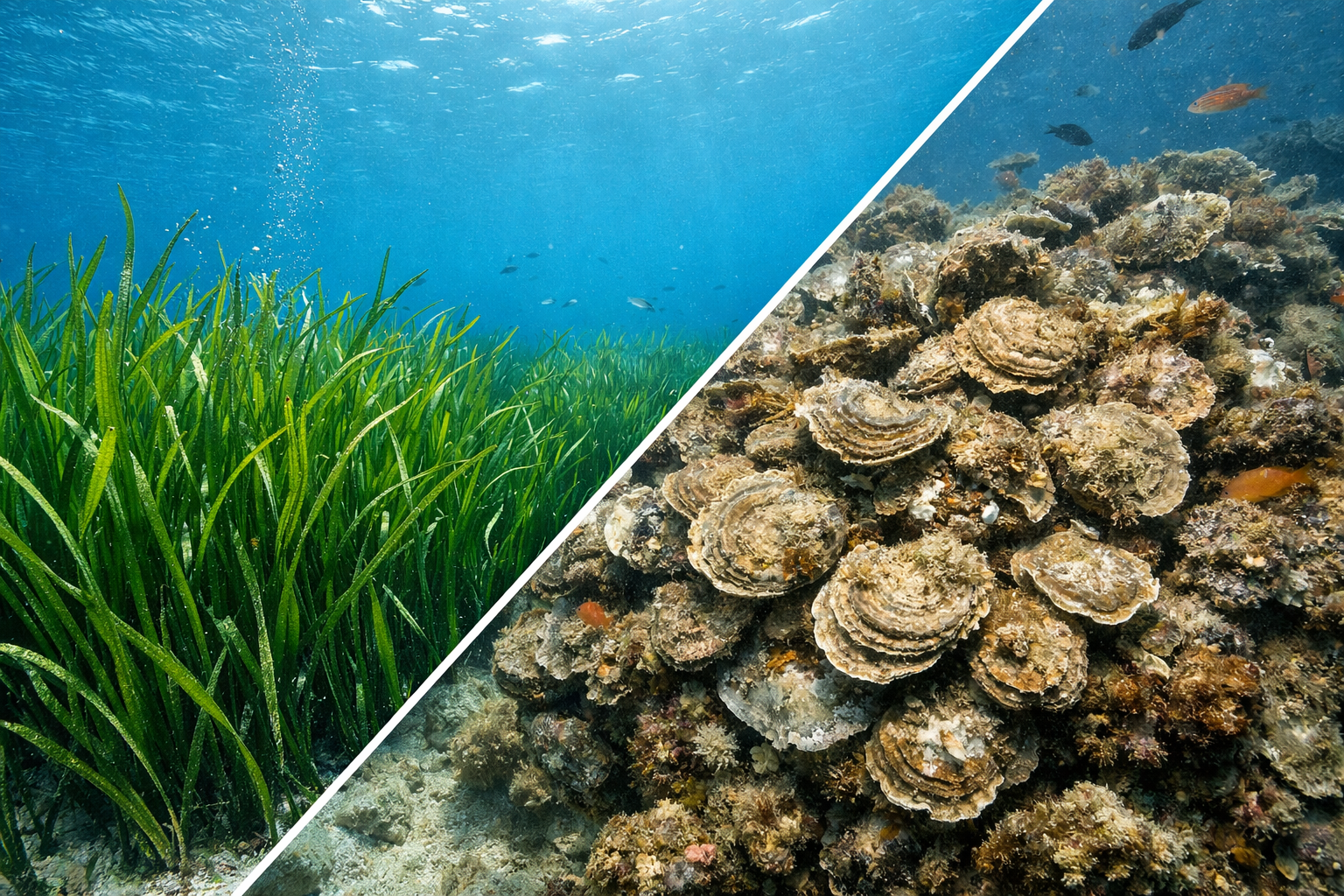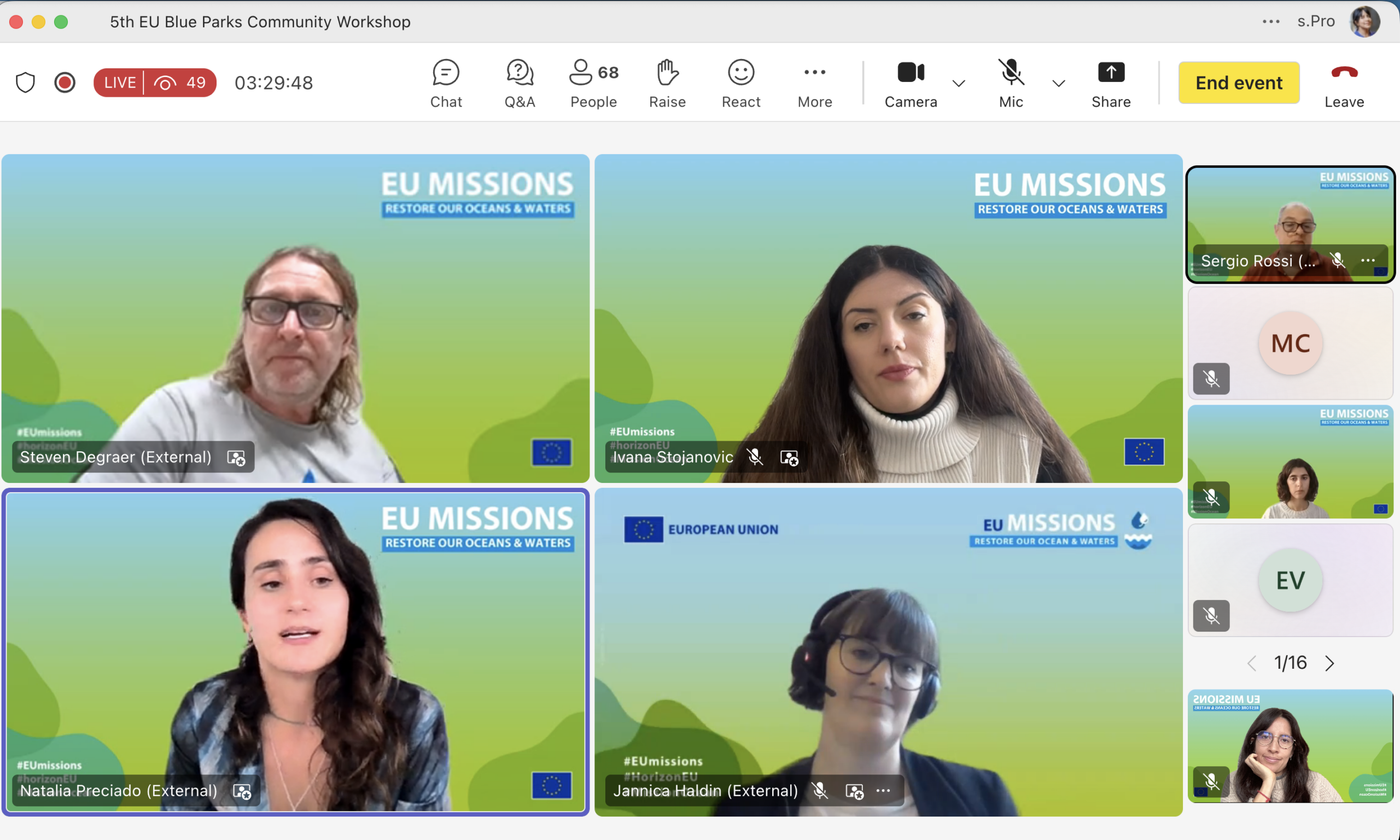As part of COP30’s Ocean Pavilion, Débora joined the panel “Marine Conservation Planning for a Healthy Ocean”, which took place on 12 November 2025 at Casa Vozes do Oceano in Belém do Pará. The session brought together international experts to discuss how Marine Spatial Planning (MSP) and Marine Protected Areas (MPAs) can contribute to healthier and more resilient oceans. The discussion featured key voices including Adriano Quintela (Blue Azores Programme), Ana Paula Prates (Brazil’s Ministry of the Environment and Climate Change), Will McClintock (Director of the SeaSketch Program), and Marinez Scherer (COP30 Special Envoy for the Ocean), who moderated the session.
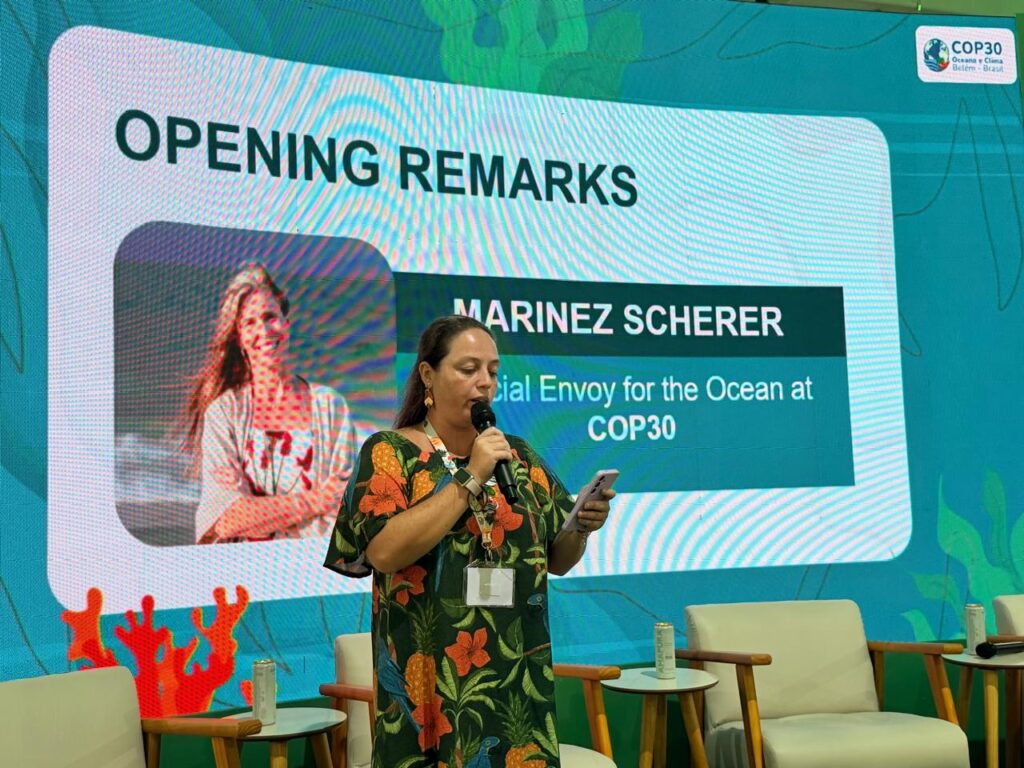
Débora also moderated a session on 13 November 2025, titled “Marine Spatial Planning and Marine Protected Areas as Sustainable Ocean Planning and Management Strategies”. This event focused on advancing the role of the ocean in global climate action and showcased innovative tools and regional initiatives that connect local action to global sustainability goals. Together with international leaders and ocean experts, the discussion explored how MSP and MPAs can protect biodiversity, strengthen ecosystem resilience, and promote sustainable ocean governance.
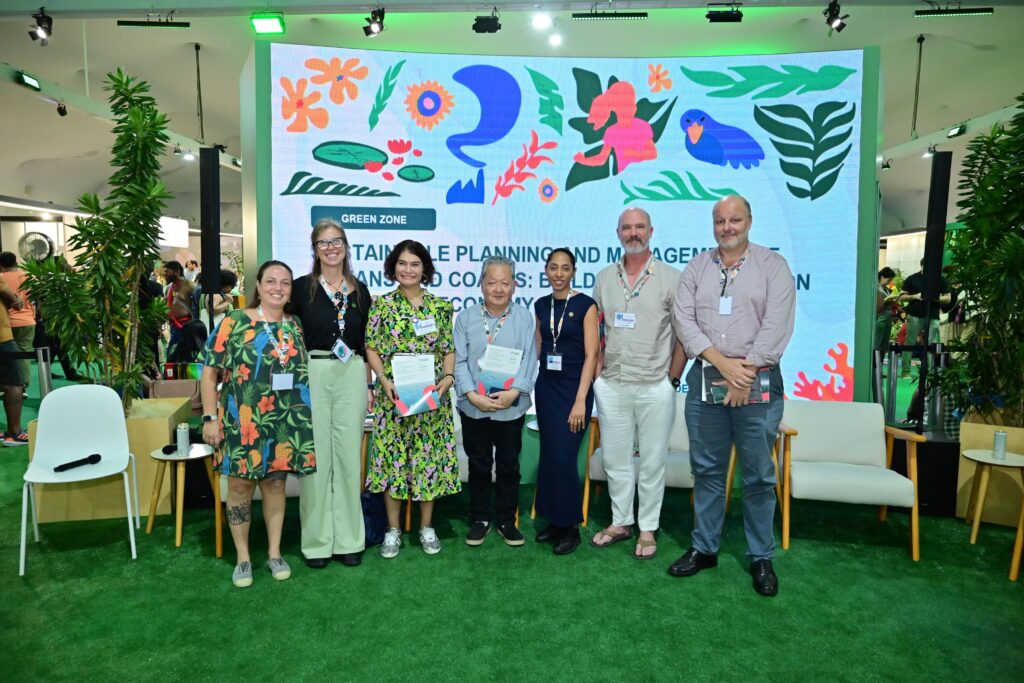
Another moment was the moderation of the high-level event “Sustainable Planning and Management of Oceans and Coasts: Building the Foundation for a Blue Economy”, in the Green Zone, on 17 November 2025. Hosted by the Special Envoy for the Ocean, Instituto Ambientes em Rede, Fundação Oceano Azul, SeaSketch, the Ministry of the Environment and Climate Change of Brazil, and BNDES, the session focused on how Sustainable Ocean and Coastal Planning and Management (SOPM) can drive marine conservation, ecosystem restoration, and the development of a fair and sustainable blue economy.
As coordinator of the Macaronesia Demo Site, Débora plays a central role in the Blue Connect project, which aims to enhance co-management strategies across the Macaronesian archipelagos – the Azores, Madeira, Canary Islands, and Cape Verde. The region serves as a living laboratory for integrated ocean management, where innovative governance models and participatory approaches are being developed to balance conservation and the sustainable use of marine resources.
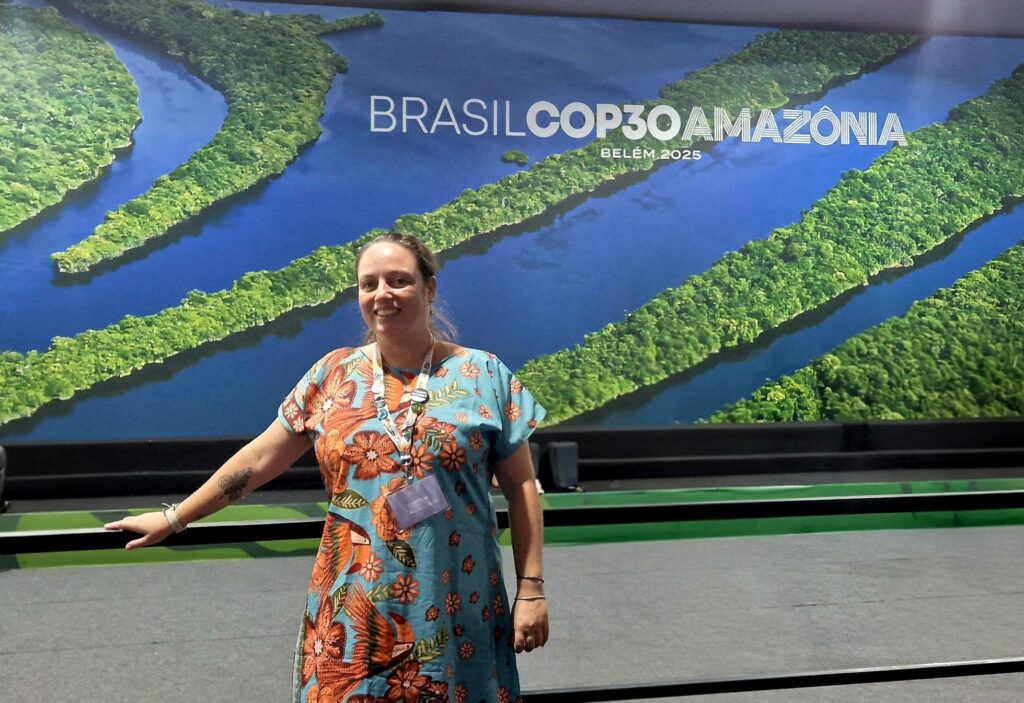
Her participation in COP30 provided a platform to share the Blue Connect vision with a global audience, emphasizing how regional collaboration in Macaronesia can contribute to international climate and ocean sustainability goals. By connecting science, policy, and community engagement, the project demonstrates how local initiatives can drive transformative action at the global scale.
The presence of the University of the Azores and the Blue Connect project at COP30 underscores their shared commitment to applied marine and climate research, positioning both as active contributors to global policies for ocean protection and climate adaptation.
Learn more about COP30 at https://cop30.br/pt-br
